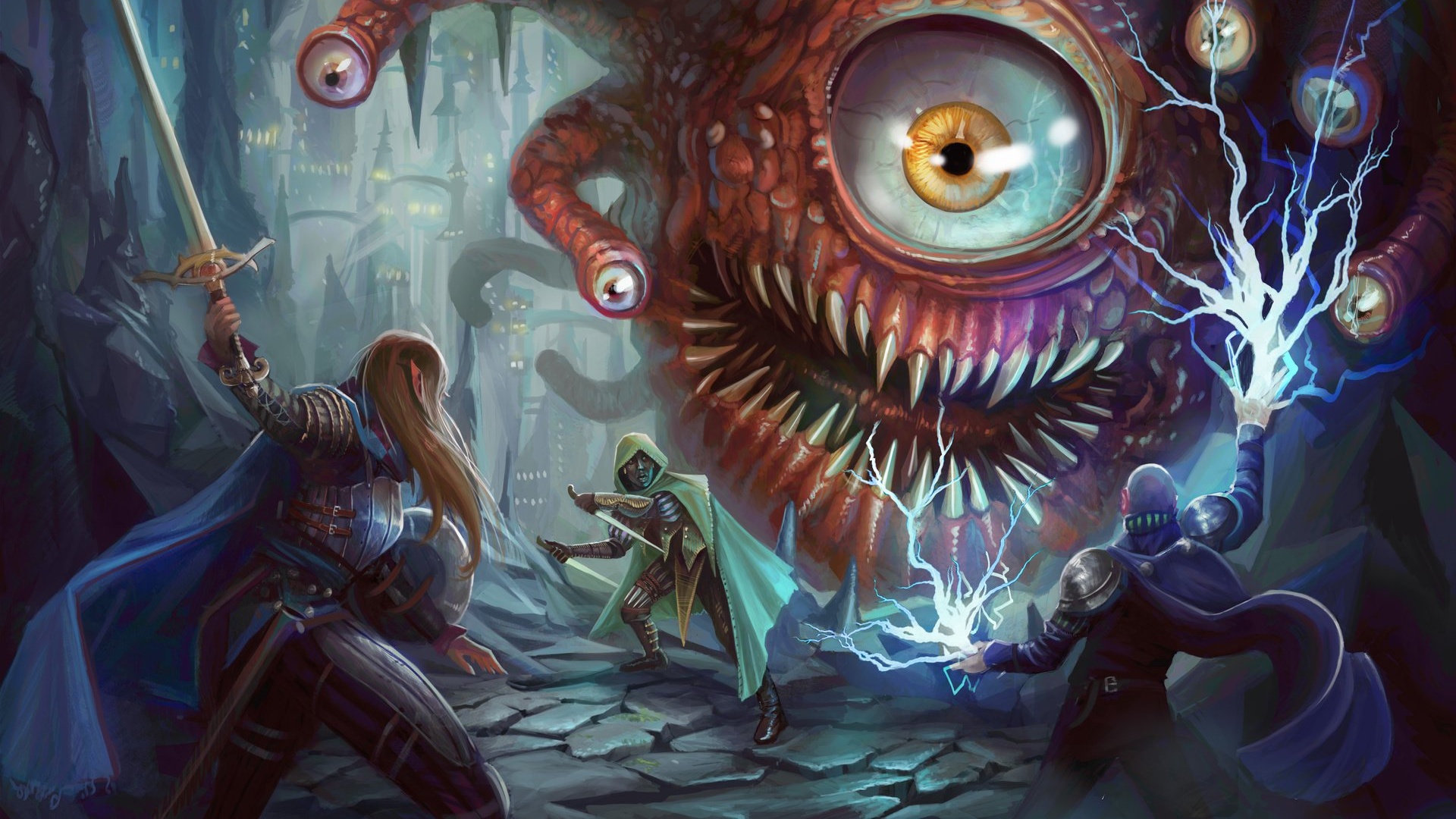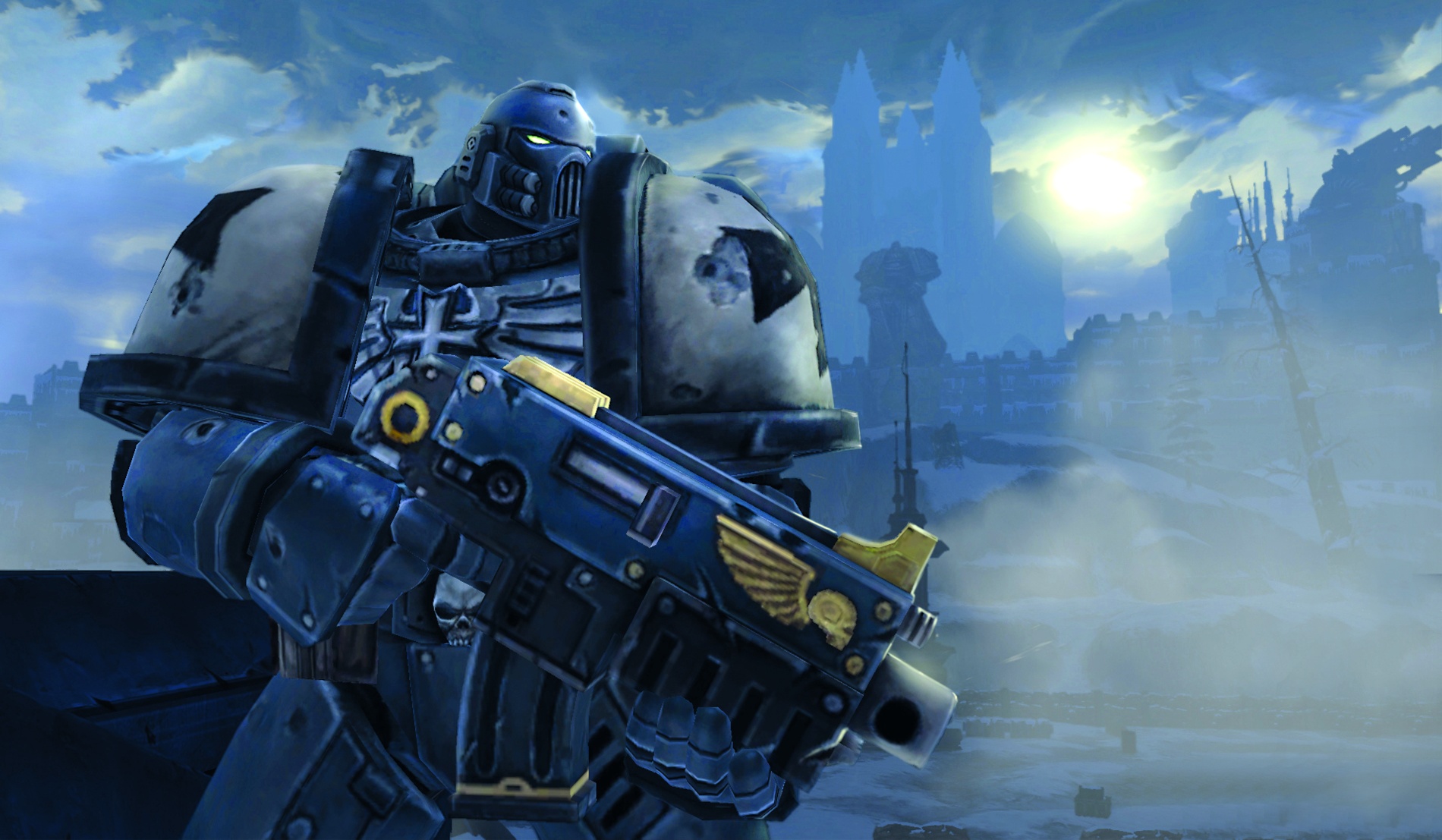PC Gamer's least accurate predictions of all time
30 years of getting the future wrong

Games magazines have always loved making predictions for the future of the industry. When you've been in the business for 30 years like we have, inevitably you build up a bit of a history of… less accurate guesses, let's say. So, for our 30th anniversary celebrations, I decided to have a dig through the archives and find our least accurate Nostradamus moments.
Honestly, it was a pleasant surprise how many of our predictions from days of yore actually did come true. We foresaw wireless peripherals, the free-to-play business model, and even location-based augmented reality phone games like Pokémon Go. But our record is certainly anything but flawless, and wrong is wrong. If you can't learn from the history of your own incorrect predictions, you're doomed to repeat them. So feel free to have a chuckle at our years of misguided futurism, and look forward to even more iffy prophecy for years to come.
By 2012, physical keyboards will be a thing of the past
Issue: 116
Published in: 2002

Our 2002 feature on the future of PC hardware kicked off with the strapline "Predicting the future's a dark and mysterious art, but luckily Simon's got crystal balls". Writer Simon Pickstock was pretty accurate on things like the increasing miniaturisation of computers, the rise of SSDs and terabyte harddrives, and the use of wireless devices. But looking at the claim that, by 2012, "keyboards and mice will exist in the virtual realm, made from light or motion trackers", we may have to acknowledge that Minority Report had come out just that summer and really given a lot of people funny ideas about PC interfaces.
The following assertion that "computers will use speech recognition as a control mechanism and will have evolved to become the centre of the digital home" feels a little ironic—as it turns out, PC controls stayed largely the same, and we instead invented weird little pods with human names to do that stuff with.
EA is going to take over gaming with the RenderWare engine
Issue: 145
Keep up to date with the most important stories and the best deals, as picked by the PC Gamer team.
Published in: 2005
EA's purchase of Criterion Software, and subsequent acquisition of the RenderWare engine, caused much concern at PCG in the early 2000s, it seems. Back then, a huge amount of games were built on RenderWare—it had a 70% market share in 2003, and major titles like Grand Theft Auto: San Andreas were built on it—and we proposed the theory that it would enable EA to gain a vice-grip over other companies and twist the whole market to its advantage. "What if EA withholds updates of the middleware, or favours their own titles, or somehow changes the business terms on a publisher?" we asked, fearfully, before drawing comparisons to the closed ecosystems on PlayStation and Xbox. "Ubiquitous RenderWare would be more like a console platform… than a simple game development tool. EA would be taking a cut of everyone's pie… without the bother of actually building a machine."
If you're reading this with no idea what RenderWare is, there's a reason for that. It shut down in 2006, just a year after this article was published, due to problems with next-gen hardware and an inability to compete with Unreal Engine. Not quite the existential threat we anticipated, and though certainly EA has only grown more powerful in the time since, it's only seemed interested in pushing its in-house engine Frostbite on its own studios.
By 2009, everyone will be gaming in 3D
Issue: 187
Published in: 2008
Once again we devoted a whole feature to our future predictions, and managed to successfully anticipate the popularity of free-to-play games (with "micropayments"), mobile phones as gaming devices, and the democratisation of game-making tools. Less authoritative is the part where we fell hard for the 3D monitor fad. "The 3D revolution will be here sooner than you realise. Expect your rich mate to buy into the technology by the end of the year. It'll be mainstream by the end of 2009," we claimed. Well, it does still exist on PC, at least, but I think it's still struggling to get past the "rich mate" step.
A CD Projekt-developed Baldur's Gate 3 will come out in 2012
Issue: 202
Published in: 2009

Inevitably a feature running down all the rumoured unannounced games in development around in 2009 was going to involve quite a lot of speculation, but we can't really let ourselves off the hook for things like giving Half-Life 3 an ETA of 2010. "It could be three years between episodes Two and Three. But if the next is as good as the last, we can live with that."—who's going to break it to us?
Further insights include Ken Levine being in charge of the then-nascent XCOM reboot, and a very confident prediction that we'd be getting a Total War game set in World War 2 by 2011. "Creative Assembly have been creeping ever nearer to the present day with their games since Rome. The main reason to do this? To engage with a generation of gamers who don't really care about ancient history, and just want to play with tanks."
But most fascinating is the section on Baldur's Gate 3, which we thought would be out by 2012 under publisher Atari. "We reckon Baldur's Gate 3 was in development at RPG workhorses Obsidian… but has been shifted to The Witcher developers CD Projekt… Expect a 3D game using a variant of the engine that powered The Witcher, party-based adventuring and lots of dialogue and stats. Would Atari announce this just before EA's Dragon Age comes out?"
They very much didn't, and ultimately it'd be a 14 year wait rather than a 3 year one before we finally got a proper Baldur's Gate sequel from a totally different developer. At least it was worth the wait in the end.
Star Wars: The Old Republic will kill World of Warcraft
Issue: 203
Published in: 2009
If there's one thing we loved doing from about 2008 to well into the 2010s, it was predicting the end of World of Warcraft. Any promising new MMO that came along was a potential pretender to the throne, and we even seemed a little shaken by The Old Republic's potential. While enjoying a hands-on preview of the game, "a horrifying truth becomes apparent: The Old Republic is a credible World of Warcraft killer".
Of course, the game went on to be pretty successful and enduring—but I don't think any of us quite realised the staying power of WoW. 14 years later and it's still the top dog, proving to be the game that both opened up and almost entirely closed off the MMO genre in one go.
Warhammer Dark Millennium Online will be the next big thing
Issue: 220
Published in: 2010

Though we weren't quite as keen to talk about WoW directly with our cover feature, we did call ambitious 40k project Warhammer Dark Millenium Online "the new MMO champion", and print a lengthy interview where the developers basically just talked about how lame existing MMO design was and how much better and more interesting their take on it was going to be. Ultimately the game didn't even have a chance to fail, because it never came out in the first place.
Firefall will rule 2012
Issue: 232
Published in: 2011
Ok, last MMO one, I promise. Not only did we think MMO shooter Firefall was going to "rule 2012", we printed a full 50 reasons why. We signed off with a confident "expect it to be open to everyone by December". In the end it didn't launch until 2014, received mixed reviews, ultimately shut down in 2017, and these days is mostly remembered for having a very expensive custom bus as part of its marketing campaign.
VR is the future of PC gaming
Issue: 259
Published in: 2013

"Has there ever been a less contentious prediction than virtual reality being the future of videogames?" was the bold opening gambit of our cover feature on the new Oculus Rift VR headset. After many enthusiastic pages of conversation with Palmer Luckey and hands-on with different VR experiences, we said that "Every one of these forays hinted at another way the Rift will explode the number of experiences available to us, and make clear that, finally—for real this time—virtual reality is the future of PC gaming".
I suppose there is still the possibility that this one will prove true, eventually, but looking back it's hard not to feel like the demographic most excited for VR was and always has been journalists, rather than normal, sane human beings. In the harsh light of 2023, VR is more accessible than ever but feels less and less relevant to gaming, and the once-revered Palmer Luckey has gone from tech messiah to creepy pariah, known less for any futuristic innovations and more for his questionable views and even more questionable facial hair.
But while you may think "What use is a PC gaming publication that can't even predict whether we'll still be using monitors in ten years?" consider that what blinded us here was optimism. Our writer was genuinely blown away by his time with the Rift, and he poured that joy into his writing. As I pored over our archives, I realised that was the case with so many of our incorrect predictions. Hope is what leads us astray—whether it's a game we wanted to be successful that wasn't, technology we thought was exciting that fizzled, or ways we thought the industry would improve that… well, didn't pan out. It's easy to make accurate predictions as a sceptical cynic; isn't it much more fun to have a history of being completely wrong but wonderfully hopeful?
That's what I'm telling myself, at least, and it's my excuse for anything of mine you dig up that's similarly off-base. I'll see you for another audit in another 30 years.

Formerly the editor of PC Gamer magazine (and the dearly departed GamesMaster), Robin combines years of experience in games journalism with a lifelong love of PC gaming. First hypnotised by the light of the monitor as he muddled through Simon the Sorcerer on his uncle’s machine, he’s been a devotee ever since, devouring any RPG or strategy game to stumble into his path. Now he's channelling that devotion into filling this lovely website with features, news, reviews, and all of his hottest takes.

